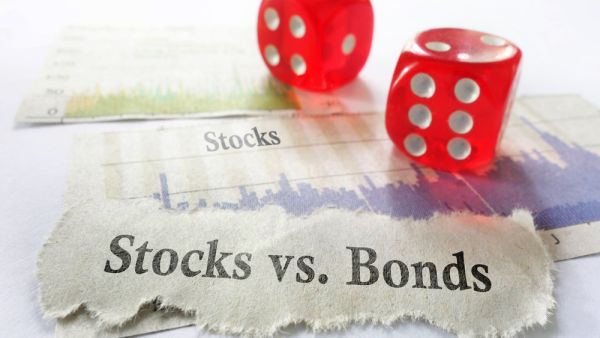Many of us have considered investing and having some source of passive income to keep cash flowing in. However, knowing what to buy or invest in can be quite tricky, and that is why we are here to shed light on the main differences between stocks and bonds!
What are Stocks?
In short simple terms, stocks are shares that you buy in a company. You can think of buying stocks as buying slices in a company, the more stocks you buy, the more of the company you own. Stocks are also known as equity and are usually bought and sold on stock exchanges.
And because your stocks represent how much of a company you own, this means that your success is directly related to the success of the company. If the company performs well, your shares will bring in good money, whereas if the company is not doing well, the value of your shares will also drop.
What are Bonds?
Unlike stocks, bonds do not involve buying stakes in a company, but instead they are thought of as loans that investors and lenders give out to companies to finance their projects. Since bonds are actually loans, this means that when you buy a bond, you will receive interest payments until the full loan amount is repaid back to you.
Key Differences Between Stocks and Bonds
Equity vs. Debt
While stocks are equity, bonds are debts. Companies usually sell equity to help finance their business while promising investors future benefits.
On the other hand, when companies sell bonds, they are actually promising to pay back the lenders the full bond amount in addition to interest over time. This way the lender will not own any shares in the company.
Generating Profit
One of the main reasons people buy stocks and bonds is to generate cash. However, the way you can reap the benefits of bonds and stocks are quite different.
When it comes to stocks, you can make money by selling your shares at a higher price than the one you bought them at. On the other hand, bonds generate money through the interest payments that you receive over the duration of the loan, in addition to the prepayment of the loan itself. It is important that bonds can also be sold like stocks, but people tend to prefer the fixed income that they generate over the period of the loan.
Associated Risk
You know what they say, “nothing great comes without a risk”, and the same applies to stocks and bonds.
Since the value of stocks are tied to the performance of a company then there is a risk of the value of your stocks decreasing after you buy them. And given the rapidly changing business world, knowing which stocks to buy is crucial to ensure you do not lose your money.
As for bonds, the biggest risk stems from newer bonds that can come with attractive rates. Not only that but when interest rates increase, bond prices tend to decrease. In addition, buying a bond from a company that might not be performing well brings on the risk of not receiving your interest and bond amount.
While bonds are considered to be less risky investments due to the fact that they have a more stable market, it is still instrumental for investors to look into the performance and credit rating of companies before buying stocks or bonds.
In addition, it is also important to shed light on the fact that the value of bonds and stocks is inversely proportional, which means when the price of one rises, the other falls.
Voting Rights
Since buying stocks means you will have shares in a company, then this gives you the right to vote on certain matters. However, given that bonds are simply loans, they do not offer any voting rights.
Are Bonds or Stocks a Better Investment?
Given the risks associated with stocks, some might say that bonds are a safer investment. While this might be true, there is no denying that with the risks of stocks comes higher return. At the end of the day, deciding what to buy is a choice only you can make, however, here are some examples to help you better understand each:
Let’s say a new technology startup is doing fairly well in the market, and the owner is looking to expand his offices. However, the owner is short on $10,000 and decides to raise money by selling a bond. The value of the bond will be $10,000 to be paid over 5 years with an 8% interest. This means that the owner of the startup will have to pay back the lender a total of $10,800.
Another way to raise money and be able to proceed with his expansion, the owner can decide to sell some of his company shares. Let us say he decides to sell 20 shares and keep the remaining 80 for himself. This means that the buyers will own 20% of the company and thus be receiving 20% of any future earnings that the company will make. However, one key difference between these two investment approaches is that with stocks, the owner will not have to pay back investors their initial investments.
The difference between bonds and stocks does not only lie in their functionality and returns. In fact, the reason many might see bonds as a less risky investment is that if the business is bankrupt, the owner has to return the money to the bond owners before taking anything to himself. While bonds have bankruptcy risk protection, stocks do not, and thus stock owners have more to lose in case of bankruptcy.
At the end of the day, whether you decide to invest in stocks or bonds, it is imperative that you do so smartly.











